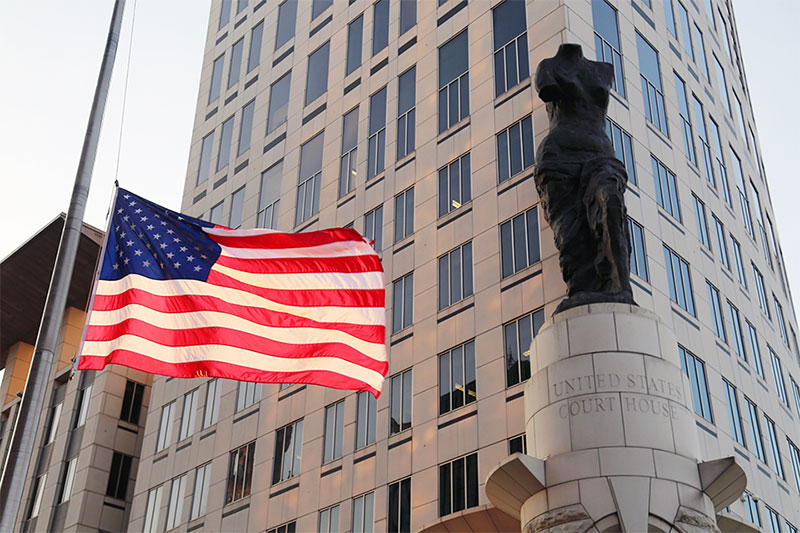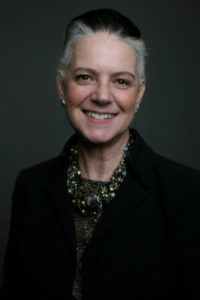Over 90% of litigating local governments have confirmed participation in the global settlements approved today by the “Big Three” drug distributors AmerisourceBergen, Cardinal Health, and McKesson, along with opioid manufacturer Johnson & Johnson.

Washington, D.C. – Today, the National Prescription Opiate Litigation Plaintiffs’ Executive Committee confirmed participation of over 90% of litigating local governments nationwide in the $26 billion global opioid settlements finalized with the “Big Three” drug distributors — AmerisourceBergen, Cardinal Health, and McKesson — and opioid manufacturer Johnson & Johnson.
The settlements require 85% of funds be allocated to programs that will help address the ongoing opioid crisis through treatment, education, and prevention efforts. A majority of states have already passed agreements that dictate how funds will be distributed between state and local subdivision governments, ensuring funds will effectively reach communities in the coming months.
The settlement was made possible in part by the years of advocacy by the entire Plaintiffs’ Executive Committee (PEC) on behalf of their more than 3,300 community clients. This team of lawyers worked for over four years to position these cases for this unprecedented resolution and cultivated collaborative working relationships with the State Attorneys General. The Plaintiffs’ Executive Committee continues to work actively with all parties to address the unique needs of the few states and communities that have yet to sign onto the agreements. The settlements currently have 100% participation from litigating local governments in nearly forty states.
Statement from PEC negotiation team of Elizabeth Cabraser of Lieff Cabraser, Shareholder Jayne Conroy of Simmons Hanly Conroy, Paul Geller of Robbins Geller, Peter Mougey of Levin Papantonio Rafferty, Joe Rice of Motley Rice LLC, Jennifer Scullion of Seeger Weiss, and Chris Seeger of Seeger Weiss:
 “We arrived at this moment after years of work by community leaders across the country who committed themselves to seeking funds they need to combat the opioid epidemic. We must also recognize the efforts of the many attorneys general and private counsel who have relentlessly pursued long overdue opioid epidemic recovery resources on behalf of their constituents and clients. The bottom line from this news is that help is on the way for first responders and healthcare workers on the front lines of this public health crisis. While nothing can truly make whole what was lost in this country, what we can do is ensure that thousands of communities nationwide have the tools they need to prevent the opioid epidemic from taking more lives. We hope this agreement does exactly that. It is also important to remember that while this is a vital step, it is only one of the many that are necessary to put an end to this crisis. We will continue our work at the negotiation table and in court during the trials ahead to hold companies in the opioid supply chain accountable.”
“We arrived at this moment after years of work by community leaders across the country who committed themselves to seeking funds they need to combat the opioid epidemic. We must also recognize the efforts of the many attorneys general and private counsel who have relentlessly pursued long overdue opioid epidemic recovery resources on behalf of their constituents and clients. The bottom line from this news is that help is on the way for first responders and healthcare workers on the front lines of this public health crisis. While nothing can truly make whole what was lost in this country, what we can do is ensure that thousands of communities nationwide have the tools they need to prevent the opioid epidemic from taking more lives. We hope this agreement does exactly that. It is also important to remember that while this is a vital step, it is only one of the many that are necessary to put an end to this crisis. We will continue our work at the negotiation table and in court during the trials ahead to hold companies in the opioid supply chain accountable.”
The settlement is the first of its kind to administer resources directly to the state and local governments specifically for relief programs to help rebuild the devastation caused by the opioid epidemic. The settlement will distribute funds based on population adjusted for the proportionate share of the opioid epidemic impact. The share of the impact is calculated using detailed, and objective national data, including the amount of opioids shipped to the state, the number of opioid-related deaths that occurred in the state and the number of people who suffer opioid use disorder in the state.
Initial deposits were put into escrow in 2021 and the first round of funding for many programs could be delivered as soon as May 2022 following a consent judgment within each participating state. Additional funds are expected to be received by July 2022. The settlement also calls for injunctive relief that requires the “Big Three” drug distributors and Johnson & Johnson to make significant changes to corporate practices to protect consumer health and welfare.
Litigation continues in state and federal courts around the country against other companies in the opioid supply chain. This settlement follows the jury verdict from November 23, 2021 in the federal trial in Ohio that found CVS, Walgreens, and Walmart liable for fueling the opioid crisis in Lake County and Trumbull County of Ohio. A judge will determine the value of the opioid epidemic abatement funds owed by pharmacy chains to these communities in May 2022.
A bench trial decision is pending in West Virginia federal court where Cabell County and the City of Huntington brought a case against the “Big Three” distributors. Both the Ohio and West Virginia trials are part of the federal opioid litigation, which involves more than 3,300 communities across the United States holding drug manufacturers, distributors, and pharmacy chains accountable amid the ongoing and worsening opioid epidemic.
The federal trial involving the City of San Francisco against pharmacy chain defendants will begin on April 25, 2022. In a case conducted jointly by PEC firms and the Attorney General of New York, manufacturer Teva and distributor Anda were found liable by a jury on December 30, 2021.
Updated information about these settlements are available at the Plaintiffs’ Executive Committee negotiation team’s website: www.nationalopioidsettlement.com.
###




